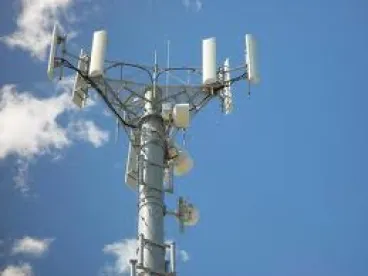Pole Attachment Reconsideration
Last week, the FCC released an Order on Reconsideration governing rates for attachments by cable and telecommunications companies to investor-owned utility poles. The Order amends the 2011 Pole Attachment Report and Order to lower the FCC “Telecom” rate to the very low level of the FCC “Cable” rate no matter how many attachers are on the pole. To do this, the Commission re-defines telecommunications carriers’ “costs” to be an ever-changing artificial percentage of fully-allocated costs based on the average number of attaching entities in the service area.
FirstNet BYOD Policy
FirstNet is taking steps to develop and implement an effective bring-your-own device (BYOD) policy for personal devices that will operate on the nationwide public safety broadband network (NPSBN). FirstNet hopes to allow public safety users to access the NPSBN on personally-owned devices, agency-owned devices, and devices that access the network through an intermediate connection like an in-vehicle router or mobile Wi-Fi hotspot. FirstNet’s policy will aim to provide an acceptable user experience while accessing the NPSBN while also ensuring adequate security and control of the device and network.
Next Generation 911
FCC Chairman Tom Wheeler published an Op-Ed in the New York Times last week urging Congress to approve one-time funding to enable the 911 network to transition from legacy technology to next generation, IP infrastructure. The FCC has adopted or proposed several changes to its 911 rules in the past two years, including 911 network reliability rules in 2013 and 2014, text-to-911 rules, wireless location accuracy standards, call-forwarding requirements from non-service initialized phones and 911 outage reporting rules. However, the Op-Ed argues that many of the gains the FCC hoped to achieve will prove illusory without adequate funding to enable public safety answering points (PSAPs) to upgrade existing 911 infrastructure and networks to support next generation technologies.
Universal Service Fund
Last week, the FCC released a Public Notice seeking comment on proposed changes to the Annual Telecommunications Reporting Worksheet and related instructions, as well as the Annual (499-A) and Quarterly (499-Q) Forms required to be filed by entities subject to the Commission’s Universal Service Fund obligations. A portion of the instructions were changed to conform to the Commission’s Open Internet Order regarding broadband Internet Access Service. The revisions also clarified that traffic studies no longer need to be filed with the Commission. Comments in response to the proposed revisions must be filed by December 24, 2015.
Hollow FCC Enforcement
Last week, a political news publication in Washington wrote an article claiming that several members of Congress are upset with the Commission’s enforcement process. The agency’s Enforcement Bureau has been aggressively announcing massive fines for a host of issues, including a Notice of Apparent Liability against AT&T in the amount of $100 million for throttling customers on unlimited data plans. However, the agency has not collected this (and many other) fines, in part because its collection process is so cumbersome. Republican members of Congress have taken a different view and are concerned the agency is abusing its enforcement process and issuing fines it may never intend to collect in an attempt to pressure companies to change their practices. It remains to be seen how this concern from Capitol Hill will impact the agency’s enforcement initiatives moving forward.





 />i
/>i

